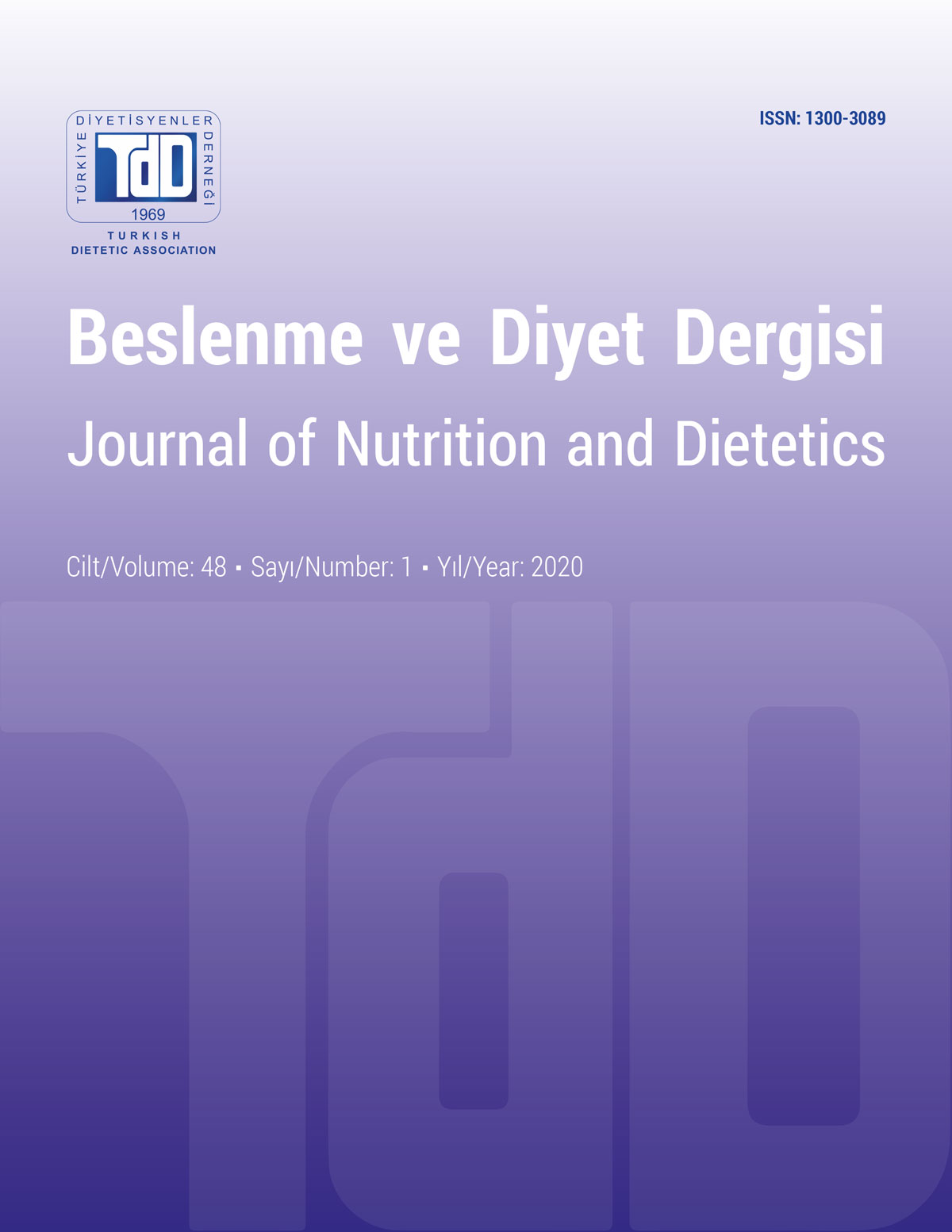Evaluation of the Effects of FODMAP Diet on Irritable Bowel Syndrome Symptoms, Nutritional Status and Quality of Life
DOI:
https://doi.org/10.33076/2020.BDD.1238Keywords:
Irritable bowel syndrome, FODMAP diet, quality of lifeAbstract
Aim: The aim of this study was to evaluate the effects of low FODMAP diet therapy (fermented oligosaccharide, disaccharide, monosaccharide and polyols) on IBS symptoms and quality of life in women with irritable bowel syndrome (IBS).
Subjects and Method: The study was conducted on 26 female IBS patients (20-49 years). Individuals followed a low FODMAP diet for 6 weeks. Three-day food consumption records were taken at the beginning of the study and each week until the study ends (21 days for each individual). IBS Symptom Severity Score (IBS-SSS), IBS Quality of Life Scale (IBS-QOL), and Hospital Anxiety and Depression Scale (HADS) were administered.
Results: The mean age was 33.1±8.8 years. Mean daily intake of FODMAP (lactose, oligosaccharides, mannitol and sorbitol) significantly decreased after intervention compared to baseline (at baseline: 13.7±7.98 grams, at the end of study: 6.7±2.56 grams, respectively; p<0.05). Median values of IBS-SSS, HADS anxiety and depression and IBS-QoL scales were 341 [182-475], 12 [3-19], 9.5 [0-18] and 49.3 [5.9-87.5] at baseline, and median values of the same scales were 120 [0-375], 9 [0-16], 6 [1-13] and 75.8 [21.3-100] at the end of the study, respectively. According to these results, there was a significant decline in disease severity (IBS-SSS) and HADS scores, while the quality of life scores significantly increased (p<0.05).
Conclusion: In this study, a low FODMAP diet resulted with improvements in severity of IBS and quality of life in individuals with IBS.

